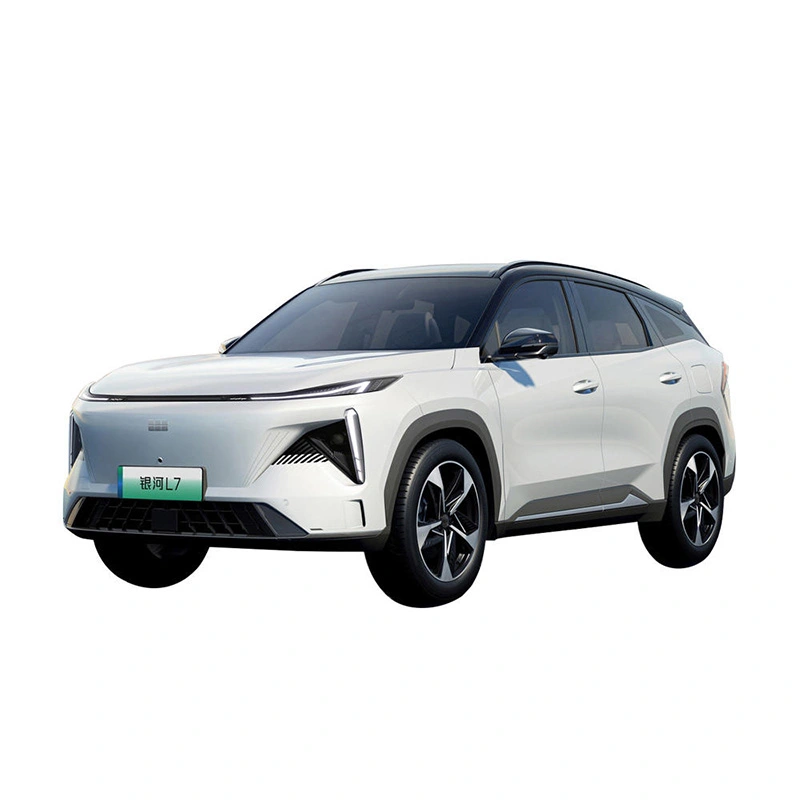

Chinese cars have become a global force, combining affordability, innovation, and quality to compete with established automotive giants. In 2025, the majority of Chinese car production remains rooted in China, with key manufacturing hubs in provinces like Guangdong, Shanghai, Anhui, and Chongqing. However, Chinese automakers are expanding their footprint globally, establishing factories in countries like Mexico and regional hubs in Argentina and the Gulf. Coupled with rigorous quality control measures like the CCC certification, Chinese brands are ensuring high standards while meeting diverse market demands.
China's automotive industry is a powerhouse, driven by advanced manufacturing facilities and a strategic global expansion plan. From bustling production centers in China to emerging factories abroad, Chinese automakers like SAIC, BYD, and Geely are leveraging their resources to produce high-quality vehicles. Strict quality control processes and localized production strategies further enhance their ability to cater to both domestic and international markets. Let's explore where Chinese cars are made and how quality is maintained in 2025.
The vast majority of Chinese cars are manufactured within China, where key provinces serve as the backbone of the industry. These regions house state-of-the-art facilities that produce millions of vehicles annually, supporting both domestic demand and global exports.
Located in southern China, Guangdong is a major hub for automobile production. Its proximity to ports facilitates efficient exporting, while its advanced infrastructure supports large-scale manufacturing. Guangdong's role as a production center underscores its importance in driving the growth of Chinese automakers like BYD, which is headquartered in the province.
Shanghai is a cornerstone of China's automotive industry, hosting SAIC, the country's largest state-owned automaker. With joint ventures with global brands like General Motors and Volkswagen, SAIC's facilities in Shanghai produce a wide range of vehicles, from traditional cars to cutting-edge electric vehicles (EVs). The city's status as a financial and technological hub further enhances its role in automotive innovation.
Anhui has emerged as a significant player in Chinese car manufacturing, with a focus on both traditional and electric vehicles. The province is home to major brands like Chery Automobile, which leverages Anhui's growing industrial base to produce vehicles for domestic and international markets. Its strategic location supports efficient logistics and supply chain management.
Chongqing, a major industrial city, is another key automotive production center. Known for its high output, Chongqing hosts facilities for brands like Changan, producing a diverse range of vehicles. The city's robust manufacturing ecosystem and access to supply chains make it a vital contributor to China's automotive industry.
Chinese automakers are increasingly looking beyond their borders to establish a global presence. By setting up factories and assembly plants in strategic locations, they are tapping into new markets and optimizing production for regional needs.
Mexico has become a critical hub for Chinese automakers, attracted by cost-saving opportunities and proximity to the North American market. Brands like BYD and Geely are establishing factories and expanding existing operations in Mexico, enabling faster delivery to the Americas. This strategic move reduces shipping costs and allows Chinese manufacturers to compete more effectively with Western brands in the region.
In addition to Mexico, Chinese automakers are setting up regional hubs in places like Argentina and the Gulf to cater to specific market demands. These hubs focus on localized production and assembly, tailoring vehicles to regional preferences. By customizing features and designs, brands like Great Wall Motors and Chery ensure their vehicles resonate with local consumers, enhancing their global competitiveness.
Chinese automakers are committed to maintaining high-quality production, both domestically and globally. Rigorous quality control processes, such as the CCC certification, ensure that vehicles meet stringent safety and performance standards.
The China Compulsory Certification (CCC) mark is a mandatory requirement for vehicles sold in China. This certification ensures compliance with strict safety and quality standards, covering everything from structural integrity to emissions. The CCC process has helped Chinese automakers build consumer trust by guaranteeing that their vehicles meet high benchmarks for reliability and safety.
Chinese car manufacturers operate state-of-the-art facilities designed to uphold global production standards. These factories leverage automation, precision engineering, and advanced quality control systems to produce vehicles that rival those of Western brands. Continuous investment in technology ensures that Chinese cars meet the expectations of discerning consumers worldwide.
Chinese automakers have developed a sophisticated global production network that combines international standards with localized customization. By establishing regional hubs and tailoring vehicle specifications to local markets, brands like FAW Group and Dongfeng can deliver vehicles that meet diverse consumer needs. This approach not only speeds up parts delivery but also enhances the appeal of Chinese cars by aligning with regional preferences, such as specific safety features or design aesthetics.
Several Chinese automakers are leading the charge in production and innovation, solidifying China's position as a global automotive leader. SAIC, the largest state-owned automaker, collaborates with international giants like General Motors and Volkswagen to produce a wide range of vehicles. FAW Group, the second-largest state-owned manufacturer, is known for its diverse portfolio and strong domestic presence. Other notable brands, including Changan, Geely, Great Wall Motors, Chery Automobile, Dongfeng, and BYD, continue to drive innovation, particularly in the electric vehicle sector, while expanding their global reach.
The strategic manufacturing hubs in China, combined with global expansion into markets like Mexico, Argentina, and the Gulf, highlight the ambition of Chinese automakers. By leveraging advanced production facilities, rigorous quality control measures like the CCC certification, and localized strategies, brands like SAIC, BYD, and Geely are meeting the demands of diverse markets. Their ability to produce high-quality, affordable vehicles positions them as formidable competitors on the global stage.
In 2025, Chinese cars are manufactured primarily in key Chinese provinces like Guangdong, Shanghai, Anhui, and Chongqing, with growing global hubs in Mexico and beyond. The industry's commitment to quality, demonstrated through the CCC certification and advanced manufacturing standards, ensures that Chinese vehicles meet high safety and performance benchmarks. As automakers like SAIC, FAW, and BYD continue to innovate and expand, Chinese cars are redefining affordability and quality, making them a compelling choice for consumers worldwide.